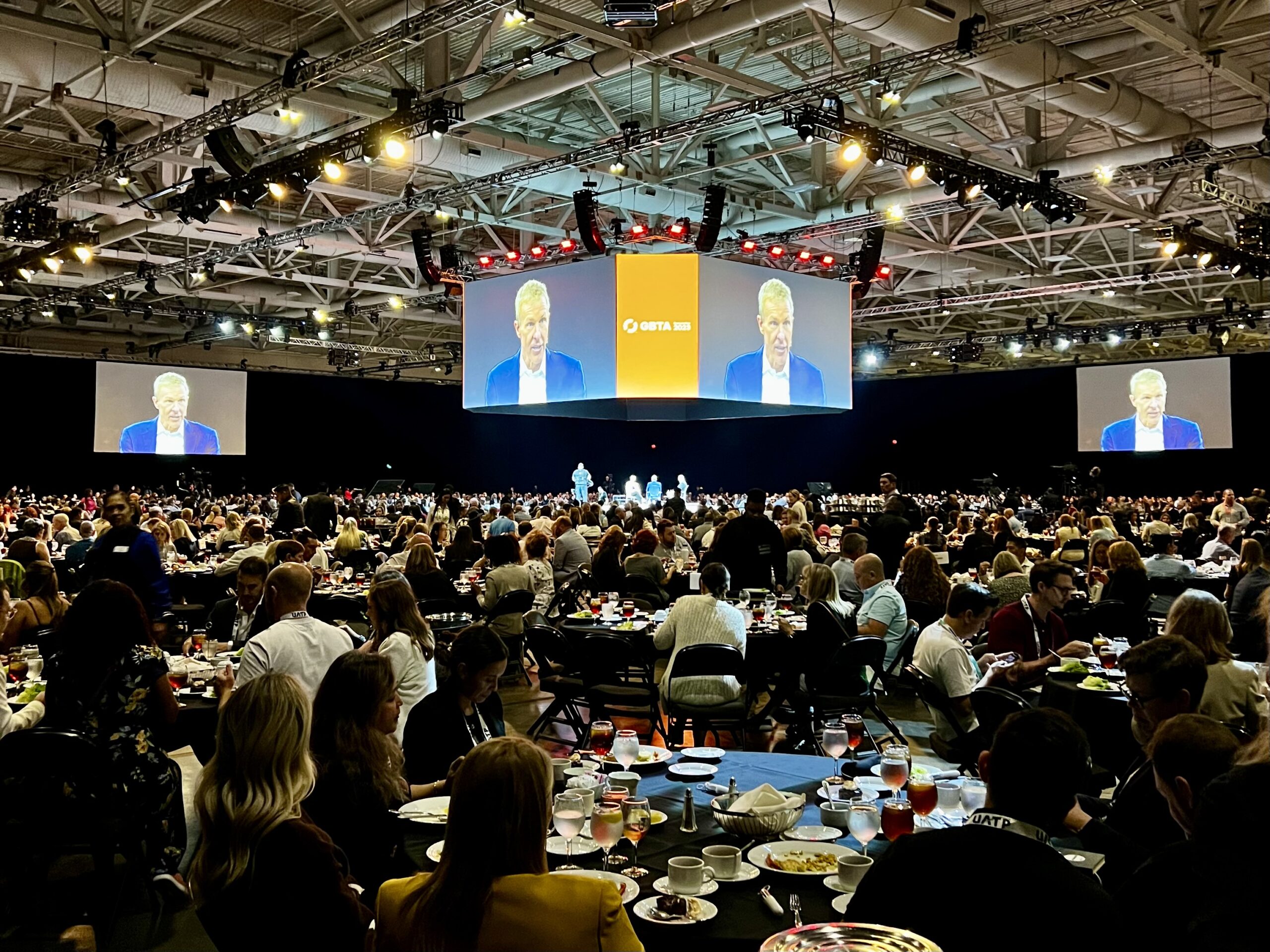Saudi Arabia Eyes Majority Control of London Heathrow
The Saudi sovereign wealth fund could increase the 10% stake it purchased in the airport last month
by Lauren Smith
December 14, 2023
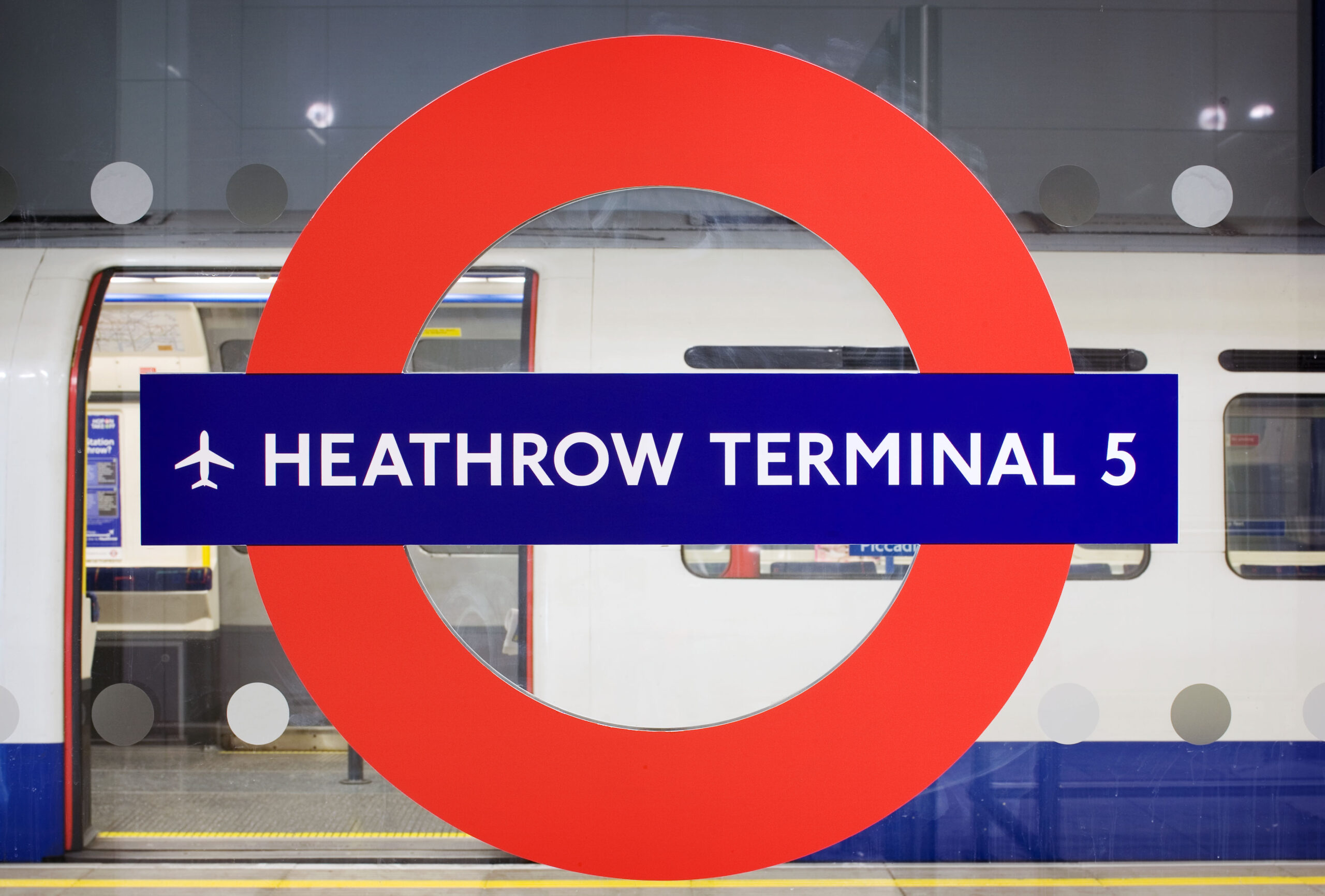
Photo: Heathrow Airport, Terminal 5. Courtesy of BAA Airports Limited.
Saudi Arabia may acquire a controlling stake in London Heathrow Airport (LHR) due to the potential sale of investor stakes, as per reports by UK’s Sunday Times.
Last month, the Public Investment Fund (PIF) of Saudi Arabia and Ardian, a private equity investor, acquired a 25% stake in the airport for £2.4 billion (£3 billion). The Spanish infrastructure firm Ferrovial has been the main owner of the airport since 2006.
While the Saudi PIF and Ardian will hold their respective 10% and 15% shares of the airport separately, the Saudis are limited partner investors in the French company’s infrastructure funds, giving them sway over 25% of Heathrow shares.
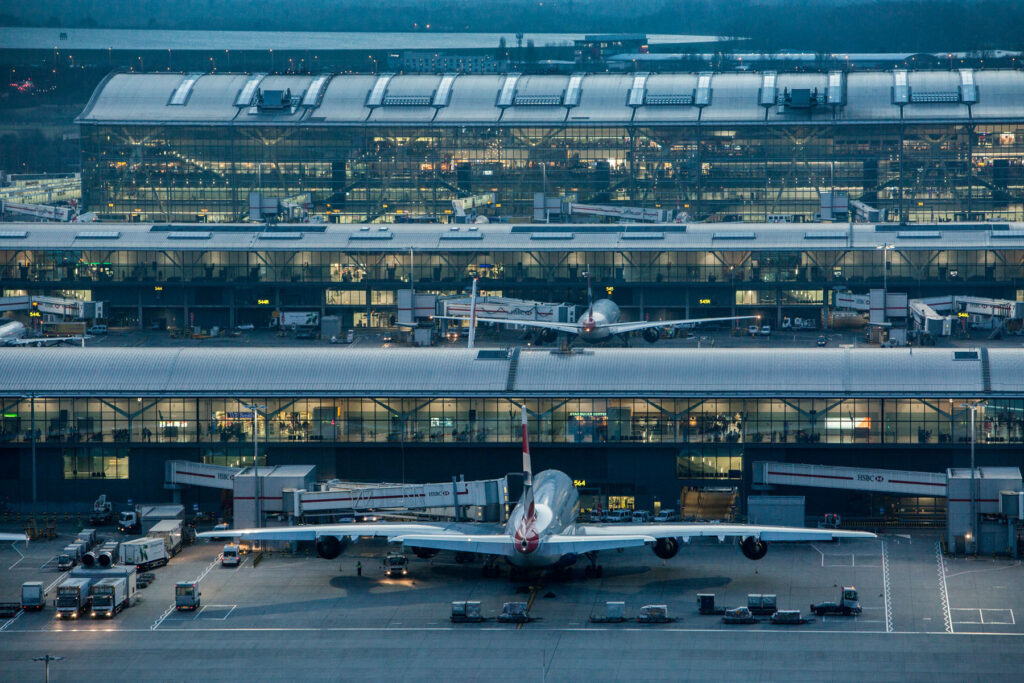
Photo: London Heathrow Airport, Terminal 5. Photo. Courtesy of BAA Airports Limited.
The deal values Heathrow at £9.5 billion ($12 billion), 70% above Morgan Stanley’s valuation of the loss-making airport.
Under the terms of Heathrow’s shareholder agreement, other investors are now entitled to sell their stakes to the Saudi PIF and Ardian at the same generous price. At least one investor has hinted its interest, the Sunday Times reports.
The anonymous head of one unnamed shareholder told the newspaper: “At that price, we are a seller.”
The other leading investor in Heathrow is the Qatar Investment Authority, which is reportedly reluctant to offload their 20% stake to the Saudis. Five other investors hold between 10% and 12.6% stakes. China and Singapore’s sovereign wealth funds are unlikely to offload their shares.
More likely sellers are pension funds from Quebec and Australia and the UK’s Universities Superannuation Scheme. All declined to comment.
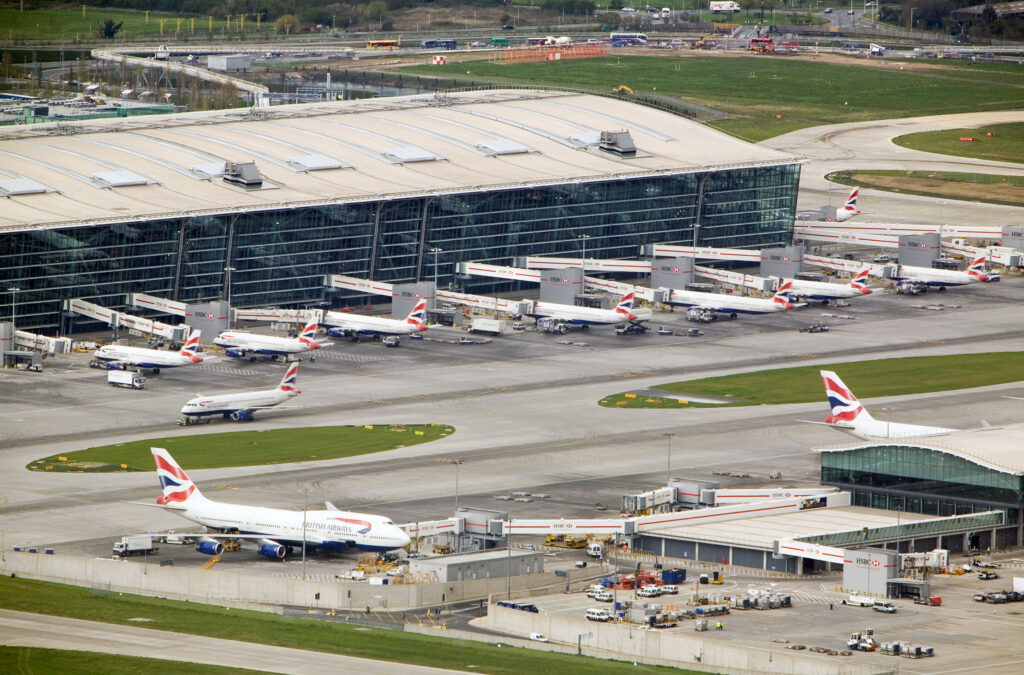
Photo: London Heathrow Airport. Courtesy of BAA Airports Limited.
There’s no guarantee that the Saudi PIF and Ardian will agree to increase their stakes. The buyers are focused on closing the deal with Ferrovial, which will require clearance by the UK’s competition watchdog, and haven’t yet spoken to other shareholders, a person familiar with the negotiations said.
However, further investment in Heathrow would align with Crown Prince Mohammed bin Salman’s (MBS) plan to reduce Saudi Arabia’s reliance on oil revenue and diversify into aviation and tourism. The wealth fund has unveiled plans to open a six-runway mega-airport in Riyadh’s capital, complete with a new airline, Riyadh Air, to fly to 100 destinations.
The PIF is also plowing hundreds of billions into Neom, a new city on the Red Sea that MBS hopes will attract 100 million tourists annually by the end of the decade.
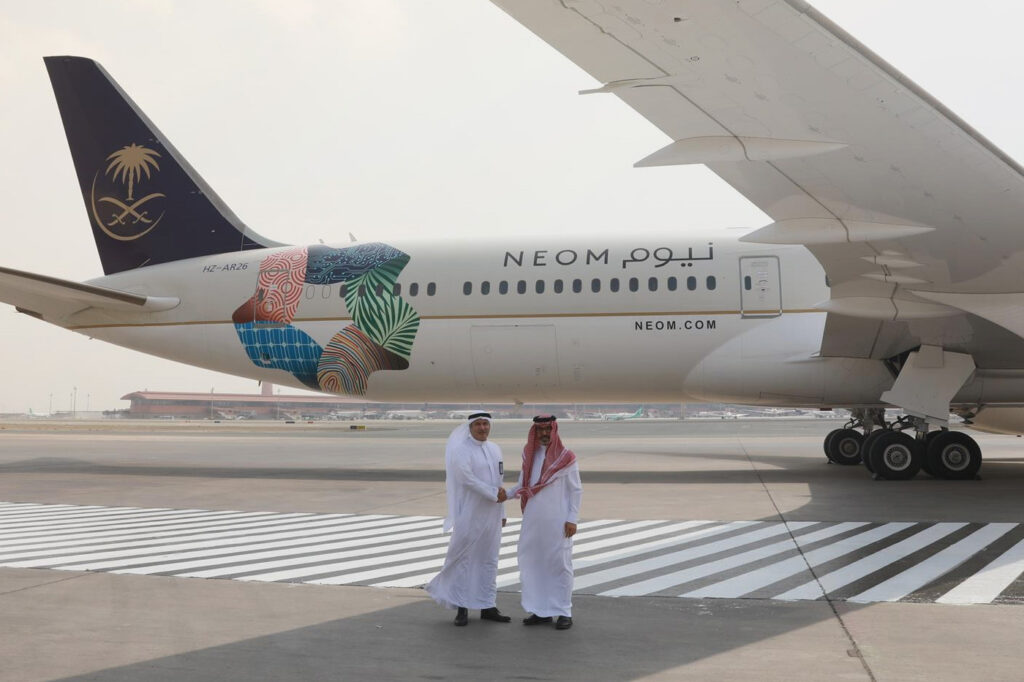
Photo: Courtesy of NEOM
A significant stake in Heathrow would give Saudi Arabia influence over Europe’s largest airport.
Heathrow “is high profile . . . and the sovereign wealth funds like trophy assets,” Robert Boyle, former director of strategy at IAG, owner of Heathrow’s largest airline, British Airways, told the Financial Times. But the PIF will want “a reasonable assurance of a guaranteed return” on their investment, he added.
Heathrow could once securely offer that, paying shareholders £3.2 ($4) billion in dividends between 2006 and 2020. But unlike some sectors of the travel industry, the airport has struggled to rebound from the pandemic’s moratorium on travel. The airport saw passenger numbers triple in 2022 but still made a significant loss: £684 ($858) million.
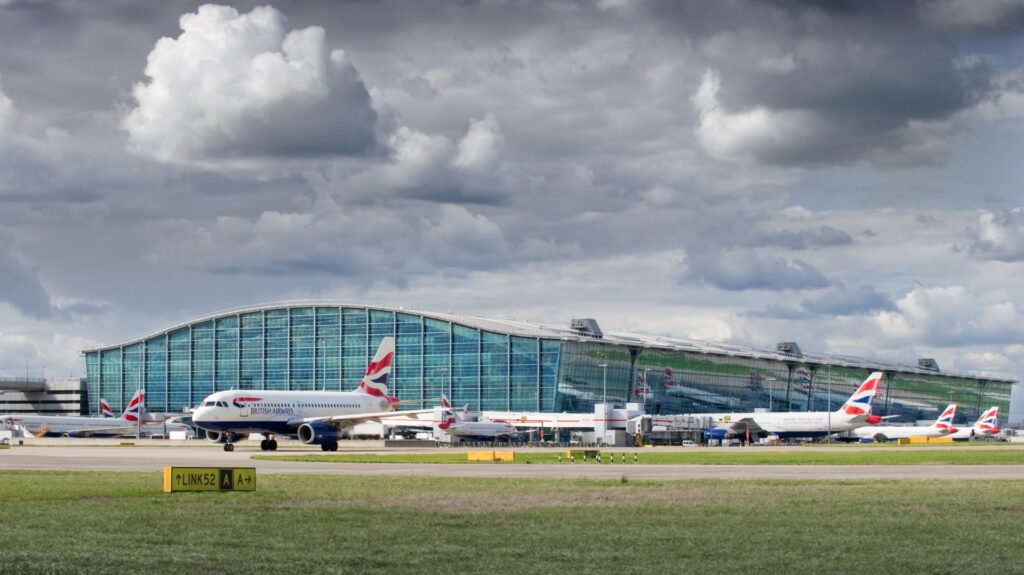
Photo: London Heathrow Airport. Courtesy of BAA Airports Limited.
The airport’s £15.8 billion debt has also become more onerous as interest rates have risen.
Heathrow also faces a 20% cut to the landing fees paid by the airlines to the hub, charges set by the UK’s aviation regulator, the Civil Aviation Authority.
Expansion could provide a pathway to profitability. But the airport’s long-proposed third runway is unlikely to go ahead, with only lukewarm political backing and mounting scrutiny of the environmental impact of aviation.
Managers are pursuing less radical plans to increase traveler numbers, including upgrading terminals. A new baggage system is in the works for Terminal 2, and a revamp of the airport’s security program is also underway.
CAA figures suggest that while Heathrow is making losses now, it could return to profitability quickly and pay out a predicted £1.2 billion in dividends between 2024 and 2027.

